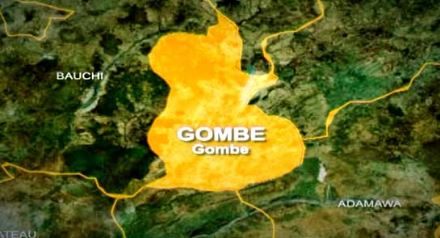Farmers in Gombe State are increasingly vocal about their frustration regarding the opaque distribution of 2,000 tonnes of fertiliser donated by the Federal Government, which was intended to bolster food security for the 2024 wet season. At a flag-off ceremony held in June, Governor Muhammadu Yahaya announced the donation to support local farmers during this crucial planting period. However, as the wet season draws near, farmers allege that these fertiliser supplies have not reached them. Instead, they claim, the fertiliser has been diverted to politically connected individuals, whom they refer to as “political farmers.” This narrative has sparked unrest among the agricultural community, leading farmers to call upon the governor to ensure that the fertiliser is distributed transparently and fairly to those who genuinely need it as they prepare for the upcoming dry season farming.
The dissatisfaction among the farming community is palpable, as reflected in the experiences shared by individual farmers. Esther Bitrus, a rice and maize farmer from the Dadin Kowa community, expressed her disillusionment, stating that the only fertiliser available to her was state-subsidised and drastically overpriced at N22,000 per bag. With no access to either federal or state-provided fertiliser, she had to resort to purchasing it at market prices. Bitrus’s disappointment captures a broader sentiment—that despite the initial goodwill of the Federal Government, farmers find themselves in dire circumstances when social support and resources fail to reach them adequately. Another farmer, Sarah Yakubu, highlighted the perilous consequences of neglecting the agricultural sector, warning that such oversight could precipitate food shortages and exacerbate poverty in rural areas.
As perspectives varied, Gombe farmer Umar Hamisu lamented the fallout of inadequate fertiliser supplies on his 2024 farming endeavours, particularly for crops like sorghum and wheat. He expressed frustration over what he perceived as unfulfilled promises, noting that while President Tinubu’s support for farmers was expected, it seemingly did not materialise in the villages of Gombe. Similarly, grain farmer Aliyu Kashere voiced his concerns, urging that farmers in Gombe be granted comparable resources to their counterparts in Kano and Nasarawa, who reportedly received free fertiliser. Kashere’s call for equitable support underscores a rising demand among Gombe farmers for genuinely assistance during the crucial planting seasons, reinforcing the urgency of the situation as the dry season approaches.
Amid these claims of misappropriation, the state’s Commissioner for Agriculture, Animal Husbandry, and Cooperatives, Dr. Barnabas Malle, vehemently rejected the allegations, insisting that the fertiliser was allocated to genuine farmers, not political affiliates. Malle asserted that stringent oversight from Governor Yahaya effectively curtailed any attempts by individuals to exploit the fertiliser for resale. He further clarified that the total fertiliser available, which combined both federal and state supplies, amounted to 4,000 tonnes distributed to cooperatives and individual farmers at subsidised prices. This official perspective seeks to reassure farmers that the government is acting in their best interests, despite the grievances that are being aired in public forums.
The farming community’s skepticism is compounded by the statements from Barrister Abdullahi Jalo, Chairman of the Fertiliser Distribution Committee. While he dismissed claims of mismanagement, he also clarified that he only took up his role in the committee after the commencement of the 2024 federal fertiliser distribution process. Jalo’s acknowledgment of the previous distributions, conducted prior to his involvement, adds another layer of complexity to the situation as farmers question the efficacy of the overall distribution strategy. When pressed about the timing of the Federal Government’s fertiliser delivery to Gombe, Jalo suggested that this inquiry should be directed at the governor, effectively passing the responsibility for this critical issue back to the state’s leadership.
As farmers continue to contend with the challenges posed by the current fertiliser distribution debacle, their demands for transparency and accountability grow more urgent. The discontent expressed by farmers—rooted in their experiences and reinforced by systemic inequalities—calls into question the effectiveness of government initiatives intended to support them. This ongoing discourse surrounding fertiliser allocation in Gombe highlights not only the critical role that agricultural inputs play in food security but also underscores the broader systemic issues that hinder equitable access to resources. The need for genuine engagement between the government and farmers is clearer than ever as both parties navigate the complexities of agricultural policy and practice, aiming to ensure that support reaches those who require it most in their relentless quest for food security.














